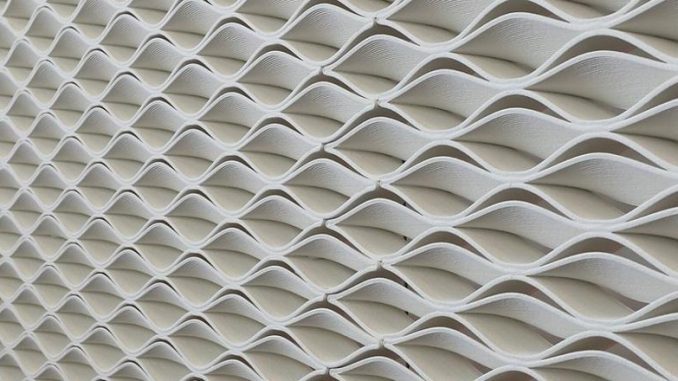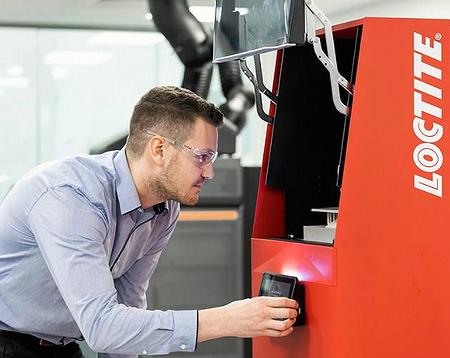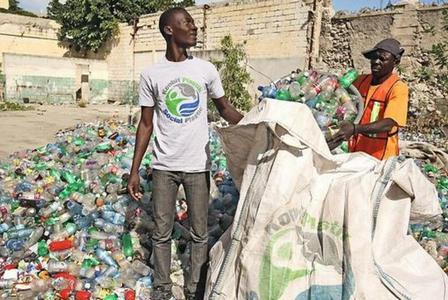
DUSSELDORF, Germany, April 20, 2021 (ENS) – Henkel’s, the German firm founded in 1876 that today manufactures adhesives and resins for 3D printing, has achieved zero production waste to landfill status at its Dixon facility in California. Achieving this status is a global initiative, and already more than 66 percent of Henkel’s Adhesive Technologies production facilities worldwide have reached zero production waste-to-landfill status, including eight in the United States.
Production waste at the Dixon site includes non-hazardous materials such as cardboard, paper and other packaging materials, which are recycled. But until recently, other materials that were not as easy to recycle were sent to landfills. With the development of new capabilities and business processes, Henkel has confirmed that its vendor could process additional materials for energy recovery, enabling the facility to completely reach its goal for zero production waste-to-landfill, ZWTL, status.

“Waste reduction is commonly thought of as one of the big benefits of additive manufacturing,” Henkel’s Operations Manager, 3D Printing, Jake Kisner, said. “However, the major focus today is on a narrow part of the supply chain. Certainly, there is less waste in production when comparing additive with a subtractive technology like machining, but there are also opportunities upstream, before a job is ever printed.”
Henkel’s sustainability strategy is to add value through its business activities while reducing its environmental footprint.
By 2030 the company plans to triple the value it generates from its products and services, while striving to become more efficient in its approach to operations, focusing on three key areas including “energy and climate,” “materials and waste” and “water and wastewater.”
“We are committed to fulfilling our sustainability promise,” said Kisner. “From a materials and waste perspective, we are working to reduce resource consumption, leverage renewable raw materials, and streamline our packaging to minimize waste. But we’re also keenly focused on improving our recycling efforts.”
“Achieving ZWTL status at the Dixon facility demonstrates our 3D printing team’s resolve in helping Henkel achieve its environmental goals. Not only did we have to identify all the materials we were sending to landfills and find a way to recycle them, we also had to create and implement new processes,” Kisner said. “The motivation and contributions from our employees were evident. They were excited to impact change, both within our company and for society as a whole.”
The team at Dixon created a solution that is truly scalable, he said, and as the additive manufacturing business grows within Henkel, the impact becomes even more profound. “While there are some unique processes involved with the manufacture of 3D printable resins, there are many best practices that can be implemented at other facilities, and beyond Henkel, there is also opportunity for the additive manufacturing industry as a whole.”
Reusing Plastic Bottles Rescued from the Waste Stream

In pursuit of its goal of reducing plastic waste, Henkel has partnered with the social enterprise Plastic Bank, a for-profit social enterprise founded and based in Vancouver, British Columbia, that builds recycling ecosystems in under-developed communities to fight both plastic pollution in oceans, and poverty.
Plastic Bank explains on its website that Social Plastic® feedstock is used in its partner’s products, preventing the need for new plastic creation. “Our goal is to override the market’s need for virgin plastic materials by providing ethically recovered material that also transfers its value to communities in need,” the group says.
Now, Plastic Bank has reached a milestone – 17,000 collectors worldwide have collected a total of one billion plastic bottles, which will be returned to the reusable material cycle in the form of Social Plastic®. That is over 20 million kilograms of plastic that might otherwise have ended up in the ocean. Since 2017, Henkel’s Beauty Care division has increasingly been using this recycled Social Plastic in its product packaging and bottles, especially for Nature Box, its Cosmos Natural certified cosmetics brand.
Featured Image: The 3D Printed wall in the Henkel Innovation and Interaction Centre, made from Loctite products and designed by Jennings Design Studio, Dublin, Ireland and Aectual, The Netherlands. (Photo © 2021 Henkel AG & Co. KGaA. All rights reserved. Used with permission)
